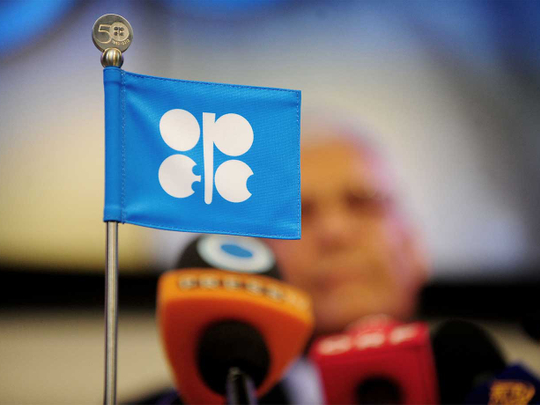
Abu Dhabi: The credibility of Organisation of the Petroleum Exporting Countries (Opec) to bring about a change in the oil markets will be at stake when the 14-member group meets in Vienna on Wednesday.
The oil group, which has held significant control over the oil market for decades, seems to be losing ground due to disagreements between members and non-Opec member alike. Russia, one of the world’s top-three oil producers, on Tuesday said it will not be taking part in the output curb talks in Vienna.
Opec countries met at least twice this year to reach a deal to stabilise oil prices. In Doha in April, they failed to reach an agreement after Saudi Arabia insisted Iran join the deal to freeze production.
In Algeria on September 28, the member countries agreed to an output cut of 32.5 to 33 million barrels a day but they are yet to implement the deal as differences remain on how much each country should bear the burden of reducing output.
“The credibility issue is very important. Stakes are very high for Opec to come to an agreement as none of the several trial runs this year have actually resulted in Opec oil decreasing. Time now is for credibility to be matched by action in the physical markets. They need to take oil out of the market if they want to back up their words with action,” said Edward Bell, a commodity analyst at Emirates NBD.
The chances for a deal have dissipated or weakened somewhat because of some of the comments from Opec ministers particularly from Saudi oil minister Khalid Al Falih, according to Bell.
In his comments, the minister said that the oil market will be balanced in 2017 regardless of whether Opec institutes a production cut or not.
“It is pretty indication that the market should be prepared for no agreement tomorrow,” Bell said.
There are also differences between Iran and Saudi Arabia and intense competition among Opec member countries to increase their market share in Asia.
Within Opec, there is still quite a bit of tension over access to key markets in Asia, particularly China and India. Saudi Arabia’s share of Chinese and India imports is growing at a much slower rate than that of Iraq or Iran. “I think those are the kind of economic issues that’s going to be big issue that these countries are going to have to try to sort themselves out, which is very difficult,” he added.
Saudi Arabia, Iran differences
Saudi Arabia wants Iran to limit production to 3.7 million barrels per day whereas Iran is trying to ramp up production to pre sanction levels of 4 million barrels per day.
“Iran-Saudi relations are going to be a major issue at the meeting. Saudi wants Iran to reduce output whereas Iran is trying to increase production. There are economic and political issues between the two countries,” said Tamas Varga, an analyst at London based brokerage firm PVM Oil Associates speaking to Gulf News over phone.
Even back in 2008 during the financial crisis when Opec cut production by almost 4 million barrels per day to try to support the oil price, Iran barely touched their production rates.
In 2008 the cut was mostly from Saudi, UAE and Kuwait, and analysts expect the same three countries again if there is going to be any cut this time.
Exemptions for Libya, Nigeria
It is expected that exemption would be given to Nigeria and Libya from production cuts, but it is not sure whether Iraq would be excluded from the deal.
Iraq, the second largest oil producer in Opec, says they need more money to fight Islamic state militants whereas Nigeria and Libya’s production is hit due to militancy and unrest.
“It would be embarrassing for Opec not to reach an agreement at the meet. They already failed in Doha earlier this year, and they cannot afford to do it again,” Varga said.
Meanwhile, UAE energy minister Suhail Al Mazroui tweeted that Opec members are continuing their extraordinary efforts to coordinate for a fair and inclusive solution in line with an Algeria proposal.
“We arrived to Vienna to attend Opec ministerial meeting for which lots of efforts have been made to make Algeria proposal successful,” he tweeted.












